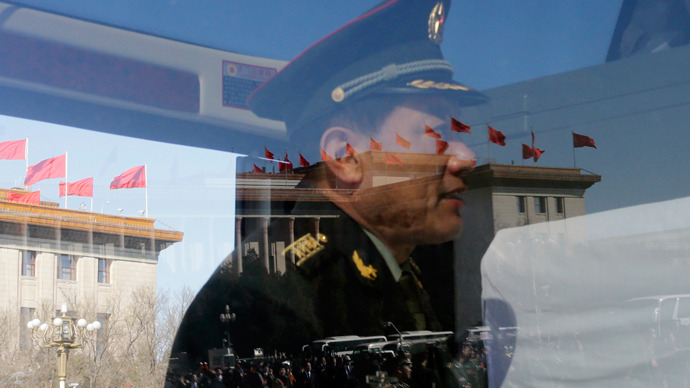‘If China sneezes, the world catches a cold’

China’s once in a decade power transition has led the world to focus on the emerging power’s global ambitions. Despite fears of Beijing’s military and political designs, analysts say China’s economic rise will play a key part in the new world order.
With Xi Jinping set to take the reins from outgoing President Hu
Jintao on Thursday, analysts have speculated how the reform-minded
leader will keep China on its forward trajectory.
China’s ascendency has for the past decade been contingent on
blistering economic growth, a trend that Professor Joseph Cheng
from Hong Kong City University believes will continue despite the
lingering economic downturn.
“China now aims at an annual growth rate of 7 percent, plus or
minus one in the coming five to ten years. This should be
manageable, mainly because the high growth rate areas of China have
been moving from the coastal areas to the interior provinces,”
Cheng told RT.
These projected levels of growth should leave China on track to
overtake the US economy within the next four years says James
Corbett, editor of the Corbett report. Corbett told RT that “a
lot of players” have a vested interest in China’s economic
rise, as a significant downturn would reverberate far beyond the
country’s borders.
“If it was true in past years, that if the US sneezed the rest
of the world catches a cold, I think it’s now becoming true
in a Chinese situation. So I think even if China is not able
to maintain its blistering pace of growth, it is still going to
continue to grow, because there are a lot of investments simply
hinging on that idea,” he argues.
The military component of China’s ascendency is not merely a
reaction to the United States so-called Asian pivot, as any great
power would need the means to “defend its territory and overseas
interests,” Cheng believes.
Double digit growth in military expenditure reflects China’s shift
from being an advanced weapons importer to an advanced weapons
developer, as evidenced by the growth in the country’s research and
development budget.
Other factors driving the country’s defense spending include the
exorbitant outlays needed for remuneration, which “has been
absorbing a very large portion of the military budget,” as well
as a need to catch up in vital areas like the country’s vastly
underdeveloped naval capabilities, Cheng says.
Corbett believes that while Beijing does one day hope to rival
American military dominance in the region, economic and financial
interests between the two states will likely nullify the potential
of a direct confrontation in the near future.
But with China playing an excessively aggressive role in the region
at a time when economic decline is pushing Washington to institute
across the board cuts to its military budget, some form of conflict
“may potentially develop some ways down the road.”
The statements, views and opinions expressed in this column are solely those of the author and do not necessarily represent those of RT.












